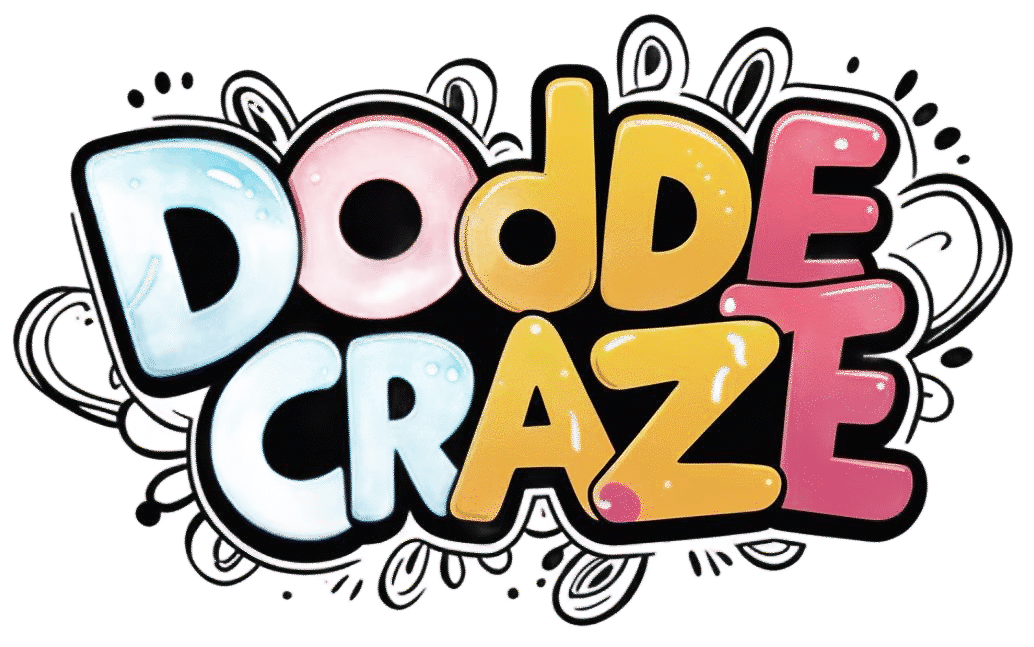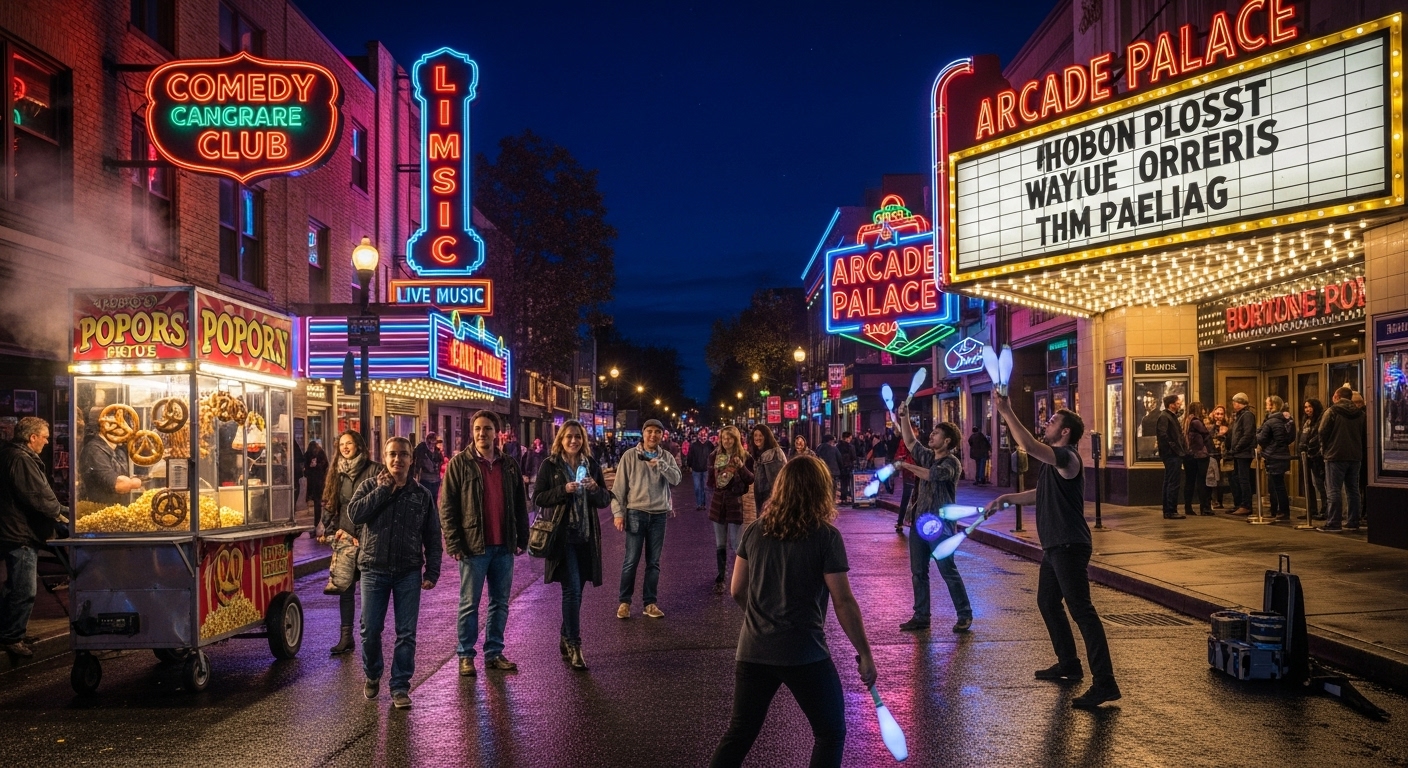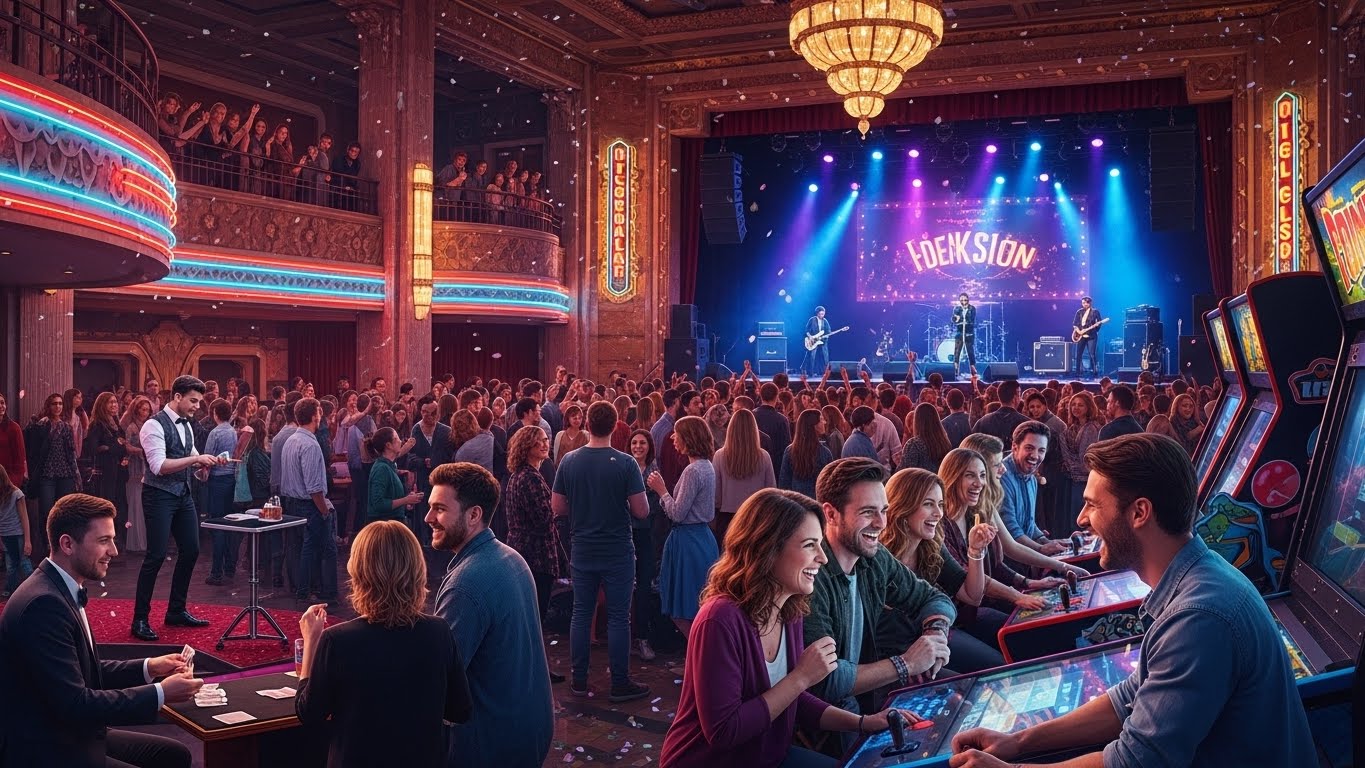Introduction: The Ever-Shifting World of Entertainment
Entertainment has always been a central part of human life, a way to unwind, connect, and express creativity. From ancient theatrical performances to the advent of radio, television, and film, the way we consume entertainment has been in constant flux. Today, we find ourselves at the crossroads of an exciting new era, where digital platforms, social media, virtual reality, and personalized content are reshaping the industry. As the entertainment world continues to evolve, understanding its trajectory becomes essential for both creators and consumers alike.
The Golden Age of Television: A Revolution in Storytelling
The 20th century saw the rise of television as the dominant form of entertainment. With iconic shows like I Love Lucy, The Twilight Zone, and later Friends and The Sopranos, television became a cultural force. This era was defined by a shared experience, where families gathered around the TV to watch the latest episode of a popular series. The influence of television on society was immense, as it not only entertained but also shaped public opinions, reflected societal norms, and launched careers.
The success of cable networks, like HBO and Showtime, also pushed boundaries, offering edgier content that challenged the conventions of mainstream media. This period laid the groundwork for the current age of television, where the focus on high-quality storytelling and complex characters continues to thrive.
The Digital Age: Streaming Platforms and Instant Access
As the internet grew, the entertainment industry experienced a massive transformation. The arrival of streaming services like Netflix, Hulu, and Amazon Prime Video shifted the power dynamics of entertainment consumption. No longer were people tied to specific schedules or cable packages; instead, they could access movies and TV shows on-demand from any device with an internet connection.
This change brought with it a new golden age of television, where streaming services have been able to produce critically acclaimed series such as Stranger Things, The Crown, and The Mandalorian. The flexibility of streaming allows viewers to binge-watch entire seasons in one sitting, creating a new form of entertainment consumption that caters to modern lifestyles. In addition, streaming platforms have allowed niche genres to flourish, providing a platform for independent creators and voices that might not have found a place in traditional media.
The Rise of Interactive and User-Generated Content
One of the most exciting developments in the entertainment industry is the explosion of user-generated content and interactive experiences. Social media platforms like YouTube, TikTok, and Instagram have allowed everyday people to become creators, producing everything from comedy skits and music videos to cooking tutorials and fitness challenges. These platforms have made it possible for anyone to reach a global audience, democratizing the creation of entertainment and breaking down traditional barriers to entry.
Furthermore, the rise of streaming platforms like Twitch has made gaming an integral part of the entertainment ecosystem. Millions of people now tune in to watch gamers play and interact with their audiences in real-time. Esports, once considered a niche hobby, has evolved into a professional sport with its own massive following, tournaments, and sponsorships.
Virtual Reality: The Next Frontier of Entertainment
While streaming services and social media have revolutionized how we access entertainment, virtual reality (VR) has the potential to redefine the entire entertainment experience. VR allows users to immerse themselves fully in digital worlds, providing a level of engagement that traditional forms of entertainment cannot match. Video games, films, concerts, and even art exhibitions are being reimagined for VR, offering immersive experiences where users are no longer passive observers but active participants.
Imagine watching a concert where you’re not just listening to the music but standing right next to the stage, feeling the crowd’s energy and the vibrations of the speakers. Or playing a game where every action feels as real as if you were there. This level of immersion is only the beginning. As VR technology continues to improve and become more affordable, its potential to transform entertainment is immense.
The Power of Personalization: Tailoring Entertainment to the Individual
As digital platforms continue to dominate, another significant change is the growing trend of personalized entertainment. With the help of algorithms, streaming services and social media platforms are able to suggest content that aligns with an individual’s preferences and viewing habits. Whether it’s recommending the next TV show based on what you’ve watched or suggesting a song you might like based on your listening history, personalization makes entertainment more accessible and relevant.
However, this shift raises important questions about the nature of creativity and discovery. While algorithms make it easier for viewers to find content they enjoy, they also limit the exposure to diverse or niche content. The danger is that audiences may find themselves trapped in echo chambers, continually watching similar types of content, while newer voices and ideas struggle to break through. The challenge moving forward will be to find a balance between convenience and discovery.
The Cultural Impact: How Entertainment Reflects Society
Entertainment is not just a means of escape; it plays a crucial role in shaping and reflecting the world we live in. Movies, TV shows, music, and other forms of entertainment provide a mirror to society, allowing us to explore different perspectives, address social issues, and discuss the complexities of the human experience.
Take, for example, the impact of films like Black Panther or TV shows like Orange is the New Black, which tackled issues of race, identity, and systemic inequality. These cultural touchstones not only entertain but provoke thought, spark conversations, and inspire change. In today’s globalized world, entertainment has become a powerful tool for social change, using its influence to challenge the status quo and amplify marginalized voices.
The Future of Entertainment: What Lies Ahead?
As we look to the future, the entertainment industry will undoubtedly continue to evolve in response to emerging technologies, societal shifts, and changing consumer preferences. Virtual reality, artificial intelligence, and even augmented reality hold the potential to transform how we experience everything from gaming to film, music, and live events.
In addition, as the line between different forms of media continues to blur, we may see more hybrid experiences where TV shows, video games, and interactive storytelling merge into single, immersive narratives. We might also witness the continued rise of esports, where gaming becomes just as popular as traditional sports, drawing in millions of fans and creating new opportunities for both players and content creators.
Ultimately, the future of entertainment is not just about technology; it’s about human connection. Whether it’s through a viral video, an immersive VR experience, or a globally streamed live concert, entertainment will always be about the stories we tell, the experiences we share, and the emotions we evoke. As long as we remain open to new forms of expression, the world of entertainment will continue to captivate and inspire us.
Conclusion: Embracing the Evolution of Entertainment
From the early days of cinema to the rise of streaming, social media, and VR, entertainment has undergone a radical transformation. While each new advancement presents both challenges and opportunities, the constant remains: entertainment is about connection. It connects us to one another, to our emotions, and to the stories that shape our understanding of the world.
As we move forward into this new era of entertainment, one thing is clear—its future will be more immersive, personalized, and interactive than ever before. Whether you’re enjoying a traditional film, playing an immersive VR game, or engaging with content on social media, the possibilities are endless. So, sit back, relax, and enjoy the ride—the world of entertainment is just getting started.



